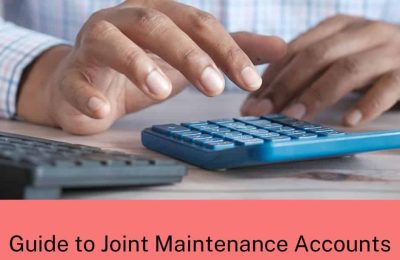Ireland continues to attract attention from UK property investors thanks to its dynamic real estate market, favourable tax regime, and increasing demand for quality rental housing. This guide explores the most important considerations for UK landlords seeking to expand their operations into the Irish property market.
Why Ireland is an appealing market for UK landlords
There is a growing interest among UK landlords in the Irish market, sparked by Ireland’s strong economic growth. These trends are creating consistent demand for rental accommodation across both urban centres and developing rural areas. As cities expand and infrastructure improves in the countryside, opportunities continue to emerge for landlords seeking stable, long-term investments.
For UK-based investors, Ireland presents a particularly accessible market due to its close proximity and shared language. These cultural and logistical similarities simplify cross-border property management and reduce the typical barriers associated with overseas investments.
Moreover, Ireland’s real estate market has shown resilience and growth, with rental yields in many areas remaining competitive. As housing demand continues to rise, especially in areas with limited supply, UK landlords are well-positioned to meet the needs of Irish tenants with high-quality rental properties.
Ireland also benefits from being part of the European Union, providing a gateway to wider markets and ensuring a level of economic stability. For landlords looking to diversify beyond the UK, Ireland offers an attractive and familiar yet distinct investment destination.
Legal and tax considerations for cross-border investors
When expanding your property business to Ireland, it’s vital to understand the legal and tax frameworks that govern real estate ownership. One of the first decisions UK landlords face is whether to invest as individuals or through an Irish-registered company. While individual ownership can be simpler, company structures may offer other benefits, depending on the scale and strategy of the investment.
Rental income from Irish properties is subject to Irish income tax, and landlords must register with the Irish Revenue Commissioners and submit annual tax returns. Capital gains tax may also apply upon the sale of the property, and stamp duty is payable on property purchases. To effectively manage these obligations, landlords must be prepared to navigate the Irish tax system, which differs in many respects from the UK system.
Understanding the differences in income tax rates and property-related deductions is essential. For instance, the treatment of mortgage interest relief, allowable expenses, and depreciation can vary, all of which directly affect net returns.
Property law in Ireland also presents important distinctions. Areas such as tenant rights, eviction procedures, and lease agreement regulations differ from UK norms. For example, tenancy protections in Ireland are relatively robust, with minimum notice periods and strict rules around rent increases.
Staying current with tax regulations that pertain to your business is essential, as Ireland’s fiscal policies have evolved differently from the UK since Brexit. Consulting with Irish-based legal and tax professionals who understand the nuances of cross-border property ownership is highly recommended. This professional guidance can help you remain compliant and optimise the structure of your investments.
Operational setup
When expanding your property business to Ireland, an effective operational setup is crucial. Hiring local staff like property managers or maintenance teams can streamline day-to-day operations. This approach ensures timely property maintenance and efficient communication with tenants. For those planning to hire staff or contractors on the ground, there are specialist payroll services for UK companies with employees in Ireland that help streamline compliance and reduce admin headaches.
Navigating legal obligations when employing Irish-based staff is an important step. Understanding labour laws, tax regulations, and required employment contracts can prevent complications. Engaging an Irish solicitor or HR consultant may be beneficial, especially if unfamiliar with Irish employment law intricacies.
Utilising local service providers can enhance service quality and responsiveness. Partnering with local cleaning, landscaping, and repair services ensures properties remain well-maintained and tenant satisfaction is prioritised. This reliance on local expertise can contribute significantly to the success of your property operations in Ireland.
Consider investing in property management software to maintain oversight from abroad. Such systems facilitate seamless tracking of rental income, maintenance schedules, and tenant communications, providing you with an up-to-date view of your business operations. This technological edge allows more effective management of your Irish properties, even while based in another country.
Maintaining property value from afar
Effective property management is essential when you are an international landlord. Regular maintenance and upkeep play a pivotal role in ensuring your property retains its value and appeal. To achieve this, an organised strategy for handling maintenance from afar is crucial.
Creating a comprehensive maintenance schedule helps in keeping track of routine tasks, such as window maintenance and repair. Such tasks may seem minor but are critical to preserving the value and appeal of your property in a competitive rental market.
When unexpected issues arise, having a network of reliable local service providers is invaluable. Establish relationships with trusted tradespeople for plumbing, electrical work, and other essential services, ensuring they can handle emergency repairs promptly.
Prioritising preventive care over reactive maintenance is beneficial. Regular inspections and addressing minor repairs early, help avoid costly large-scale damage and ensure a more stable property value.
Establish clear communication channels with your local contacts. This enables you to stay informed about the property’s state and facilitates timely decision-making, even from across borders. Emphasising regular updates can provide reassurance and confidence in managing your property effectively.
Boosting curb appeal for better returns
Enhancing the external appearance of your properties in Ireland can significantly improve their marketability. Begin with landscaping tailored to the temperate Irish climate. Choose hardy plants like hydrangeas and fuchsias that flourish in the mild, rainy weather. Strategically planting trees can also provide natural shade and windbreaks, creating a welcoming ambience for potential tenants.
Effective exterior lighting not only enhances aesthetic appeal but also increases safety. Motion sensor lights can illuminate pathways and entrance areas, providing both a practical and attractive solution. Solar-powered lighting is an eco-friendly choice that can reduce electricity costs and contribute to your sustainability goals.
One popular enhancement among Irish property owners is taking advantage of the benefits of gravel driveways, which are both cost-effective and durable, particularly in wetter climates. Gravel allows for excellent drainage, minimising puddles and mud. This practical option can add a rustic charm while also offering a low-maintenance solution.
Security is a vital aspect of curb appeal. Installing a high-quality alarm system and visible security cameras can give prospective tenants peace of mind. Attractive gates and fences can further enhance the property’s appeal while providing increased privacy and safety.
By focusing on these external upgrades, you can attract more interest and potentially increase your returns. Making smart investments in your property’s first impression is an effective strategy for long-term success.
Strategic tips for long-term success
Consider the unique regulatory environment in Ireland. Laws and taxes change over time, and staying informed helps you avoid unexpected penalties. Keep abreast of updates in property legislation through reliable sources and adapt your strategies accordingly to maintain compliance and maximise profitability.
Engage with local Irish accountants or advisors to navigate the financial landscape effectively. Their expertise can provide crucial insights into optimising your investments and assistance with complying with local tax obligations. This collaboration ensures your financial strategies align with both Irish guidelines and business goals.
Establish relationships with reliable local contractors to manage property maintenance and improvements efficiently. Trusted professionals who understand the market can offer consistent quality at competitive prices, protecting your investment’s value and tenant satisfaction.
Approach Ireland as a distinct opportunity rather than merely an extension of the UK market. Embrace its cultural differences and unique growth potential. By respecting and adapting to Ireland’s distinct market characteristics, you enhance your chances of success and create a sustainable, profitable business environment.











